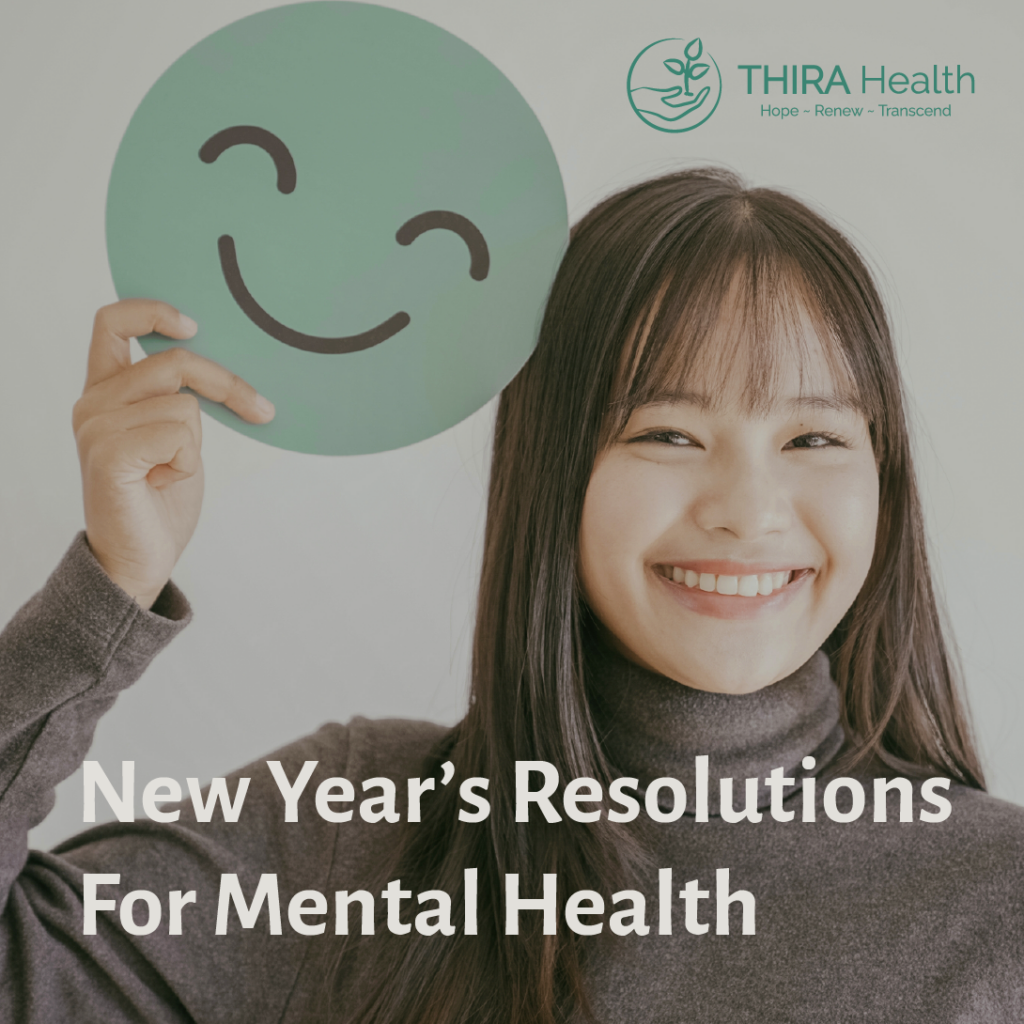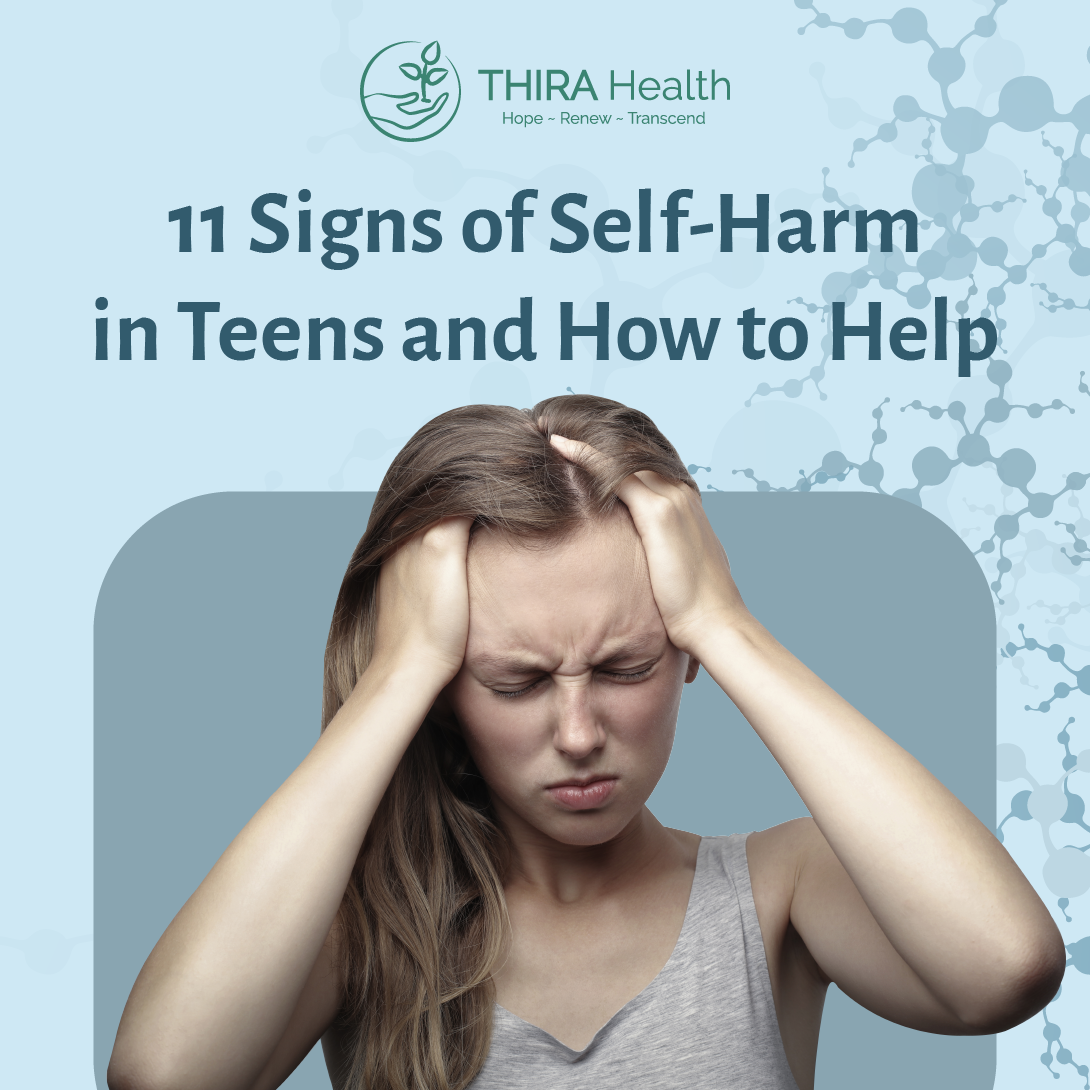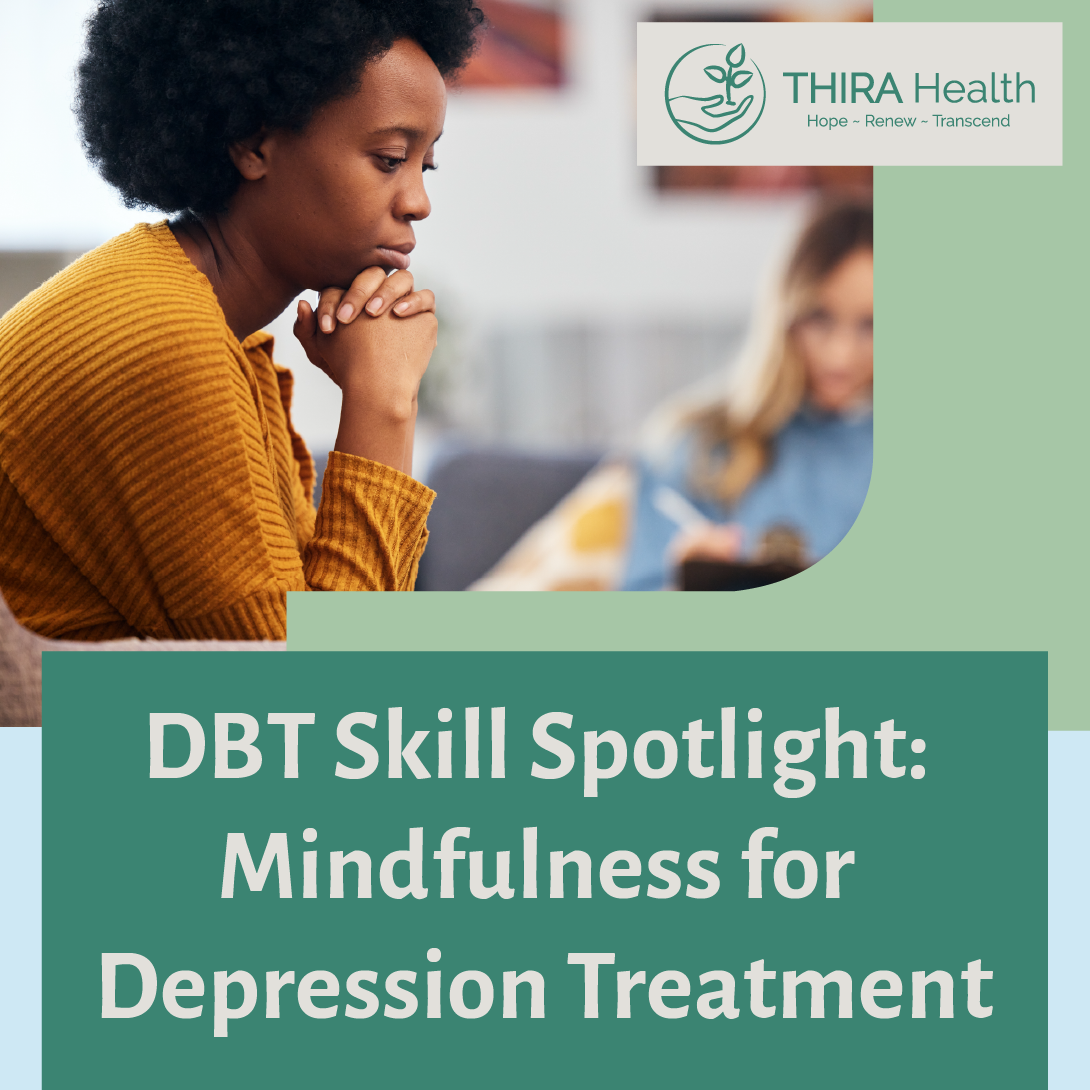At one time or another, we’ve all considered standard New Year’s resolutions, such as getting organized, starting a new hobby, going to the gym, quitting smoking, working toward a promotion, or finally starting to write that novel.
But have you considered a resolution about your mental health? We are all susceptible to treating our mental health as an afterthought, something we power through and ignore until we are left with symptoms so disruptive, so hard to ignore, that we end up needing intensive mental health treatment.
Prioritizing your mental health matters just as much as your physical health, your relationships, your family, your career, and your future. We all have mental health needs, and when we pay attention to them, we help ourselves to go further and find more satisfaction in other areas of our lives.
What kind of mental health resolutions can you make?
Focus on physical well-being
Your mental health depends, in part, on your physical health. When you emphasize nutrition and movement in ways that make you happy and feel your best, research shows you will have an easier time maintaining your mental health.
Make physical health resolutions that focus on enjoyment, like making your goals a group effort. Ask your friends and family to support your resolutions, so you have good company and cheerleaders for all your efforts. Find ways to make your goals fun so you’re more likely to stick with them.
Physical well-being is not the same as restriction
We feel it’s important to note that we don’t recommend resolutions that feel like punishment. Weight loss, calorie restriction, “forbidden” foods, or harsh exercise expectations are all resolutions that demand you feel like something is wrong with you in order to continue. Instead of restrictions and punishments, try additive physical well-being resolutions. Don’t restrict food; instead, add some vegetables to each meal. Don’t exercise to the point of harm; instead, set a resolution to find fun new ways to add movement to your day.
Reduce stress
Resolutions to reduce stress levels can make a massive difference in your mental health. Stress is harmful, draining your energy and increasing symptoms like panic attacks, headaches, digestive issues, and more.
There are two ways to reduce stress: eliminating stressful people, places, and activities and increasing your tolerance. If you can remove stress from your life, we highly encourage you to do so! That said, many of us can’t quit our jobs on a whim or entirely eliminate stressful people from our lives, so setting resolutions that help you weather stress more easily can be a great choice.
Resolving to add mindfulness exercises to your day, meditating, trying yoga, or adding massage therapy to your life can all expand your ability to withstand stress. Mindfulness is an integral part of mental healthcare, like dialectical behavior therapy (DBT), and has been proven to reduce the impact of stress, improving your mental health.
Open up about your mental health
Many of us experience stigma from others, and even from ourselves, about discussing mental health. Breaking that stigma and taking an honest look at your mental health can feel intimidating, but it is an important step toward understanding your mental well-being and finding ways to improve it.
Setting a resolution to open up about your mental health, whether it’s through journaling, talking with friends or family, or working with a therapist, is a great step toward improving your mental health. You may be surprised at how much being heard can help you, and having your experiences validated through sharing them can go a long way toward self-acceptance and self-compassion—the cornerstones of mental well-being.
Mental health treatment as a New Year’s resolution
If you’ve decided that intensive mental health treatment is the best resolution for you, finding the right type of treatment is a great next step.
We have a step-by-step guide for finding a therapist near you, available here, that can help you get started. Don’t hesitate to contact any therapists or intensive mental health treatment centers you find that you think can help you, and make sure to ask any and all questions you may have. There’s mental health treatment available for everyone, and asking plenty of questions will help you find the best fit.
Whether you seek out inpatient depression treatment in Washington, an intensive outpatient program, a partial hospitalization program, or another therapy option, know that your therapist and other providers will be by your side while you work on your mental well-being, giving you extra support that can help you stick to your resolution, even when facing tough feelings or experiences.
What is the psychology behind New Year’s resolutions?
What is a New Year’s resolution? At it’s heart, it’s a goal. You’re setting a goal for yourself for the next year to make a change that you want to see happen. Goals help us envision a future and motivate us to keep going even when the work of meeting the goal feels like a drag.
Hopefully, we’ve convinced you that having mental health goals is well worth your time. But with that said, how do you make your resolution goal happen?
For mental health resolutions, be specific on what and how
When it comes to making resolutions you’ll stick to, “improve my mental health” is a great starting point, but it’s not specific enough. Choose something approachable, like “go for a walk each day at lunch.” When you choose a what, “go for a walk,” and a how, “each day at lunch,” you set yourself up for success.
Being specific also gives you a chance to get back on track when life inevitably gets in the way. Some days will be rainy, or work will take up your lunch break, and you’ll miss your walk. But restarting is easy; during your next lunch break, go for a walk, and you’ll be right back on track for your resolution.
Choose a goal that suits you
We’ve suggested a few ways to support your mental health through resolutions, but not all of them may have sparked your interest. This is normal! When it comes to resolutions, we sometimes get stuck on the “should” instead of looking at our own “why.”
When you choose a resolution for your mental health, pick one that you feel you want or need because it speaks to you. Maybe you want more support than adding exercise will provide, and you think intensive mental health treatment will be a better choice for you. Or you have discussed it with your doctor, and decided that it’s not the best time for inpatient depression treatment, and instead, you’ll pursue stress reduction approaches, maybe through an intensive outpatient program.
Whatever you choose, know that your decision to prioritize your mental health is the right one and will set you on a path toward a life worth living!






